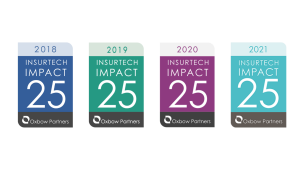The FCA Sandbox: A Regulatory Startup
25 May, 2016 Chris Sandilands
In the world of regulation, the FCA stands virtually alone as it promotes innovation in insurance. After the successful launch of FCA Innovate in 2014 it followed up with the FCA Sandbox, announced last year and launched in May 2016.
The Sandbox is designed to address certain regulatory issues that are considered a hurdle to innovation in insurance, principally addressing the need of entrepreneurs for more speed and less uncertainty. It does this by offering an environment where innovators can, subject to certain restrictions, test their product and services, with guidance on and the occasional waiver of, a rule or two.
Speaking from experience, when launching a new insurance business there are few matters of which you are sure. Top of the list of ambiguities is “how will consumers react?”. You can undertake all measure of qualitative and quantitative testing to hone your best offer but nothing replaces the raw lessons drawn from trying to sell actual products to real consumers. There are easily over a thousand insurance tech startups out there, targeting all parts of the value chain, and every last one of them would welcome this kind of regulatory assistance.
Recent research of the insurance tech start up community, carried out by Oxbow Partners, revealed that their top two critical needs were that of speed of action by partners and access to underwriting capacity to test pilot their offerings. So how will the FCA Sandbox respond to this?
Application process
Potential applicants apply under a competitive process to join a cohort of innovators. Key criteria for acceptance includes the need for genuine innovation, a UK market focus, clear benefits to the consumer, a real need to test the proposition, and a readiness to start testing. There is doubtless a lot of grey space here. How will “genuine” innovation be defined? What will qualify someone to judge? How will consumer benefit be judged and over what period? There are more, however until there is some precedent there is little value in double guessing.
Objective 1
The first objective of the FCA Sandbox is to allow innovators to undertake consumer testing before expending time and money obtaining a full regulatory license. The FCA does this by restricting the authorisiation conditions to the limited purposes of the tests. As the tests grow so do the conditions, and ultimately it can lead to full authorisation. This strikes me as a wholly balanced approach and in keeping with the concept of an “agile strategy”.
Objective 2
The second objective of the FCA Sandbox is to provide some clarity and relevancy in the interpretation of rules that were often written long before “terabytes” and “APIs” were commonly heard terms in insurance circles. The FCA Sandbox solution is to offer guidance in the first instance with the potential to waive or modify certain existing rules and in extreme cases, issue non enforcement action letters. These all come with certain conditions as you would expect from the FCA and note that they can not modify or excuse everything, and indeed they will not limit liability to consumers. Nonetheless, this is a pragmatic and positive approach to dealing with the ambiguities of rules that were drafted at a time when it was not possible to foresee how technology would develop.
Objective 3
The third objective of the FCA Sandbox is to protect the consumer that is exposed to these tests. This is achieved by defining strict parameters to the tests and requiring disclosure of the tests to consumers. Whilst disclosure will doubtless affect consumer onboarding and potentially distort the learnings I do not believe there is a way around this. If I was a consumer buying a “promise to pay” insurance contract I would want to know if it was a test case and I would want to know that the promise would be met if called upon, despite it being a test.
We are only at the beginning; the first cohort has not even started. With the Sandbox, the FCA is planting a flag, it is proactively seeking a solution to a problem. From where I sit the Sandbox is a good proposition and in time the process will be honed and uncertainties will be answered. In fact, when put it like that, it sounds much like a start-up.



